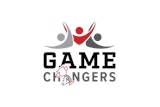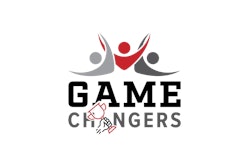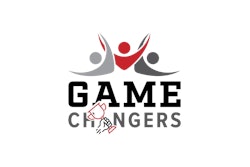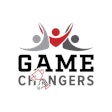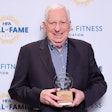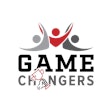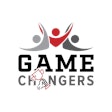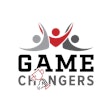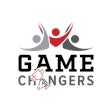
With “fail” being the first word in your company’s name, is failure the primary focus of your training?
It is a big part of it. And kind of the tagline is that setbacks are a normal part of sports and life, really. Mistakes happen, and they have a huge impact on us. We can’t avoid them all, and although we can’t avoid every setback — or mistake, failure, challenge — we can learn to fail better. It’s our response to the situation that’s more important than whatever happens. There aren’t many people who are teaching us specifically how to deal with failure, so that’s a big part of what I do.
You experienced a lot of success in your own collegiate athletic career, so what prompted you to focus on failure specifically?
The interesting thing, even though I was very successful as an athlete, I still had a lot of fear of failure. I was very perfectionistic, extremely hard on myself, which, unfortunately, is pretty typical in sport culture. There is this kind of grind culture, a lot of pushing. It doesn’t matter if you’re hurt, just keep going through it. So, this is something that I really would have benefited from. And I saw that with a lot of my teammates, you can have successful performance and still not feel great on the inside. If I would have learned how to manage some of these things — learned how to be more encouraging, more competent, all that — it would have been even better. I would have been more successful. I would have enjoyed it more. I loved my time playing college basketball, and I’m not taking anything away from that. But a lot of times there’s just this belief in sport culture that I have to be hard on myself in order to be successful, when really I think that we are successful despite our harsh criticism. I don’t know how often it actually really helps us to think it’s just part of what we do. It’s not always the most helpful thing in the world.
Is there one episode that comes to mind where an athletic setback lingered with you longer than any other?
I remember a period of time when I was in a major shooting slump, which is hard when you’re a shooter. I remember my teammates and my coaches being like, “Ash, just keep shooting,” and in my head, I was like, “That’s terrible advice. You should tell me to do something different.” It’s one thing if you’re shooting your way out of a slump and you’re confident. The shot feels good, and you’re like, “It’ll come around. It’s fine.” It’s totally different when every time you’re shooting, you’re thinking, “There’s no way this is going in,” or just saying, “I hope it’s gonna go in.” I knew my mindset wasn’t in the place where that was great advice, but I also knew what I needed. I needed to just do something different. Get some drives? I don’t know. I didn’t because of the pressures, I guess, that I was getting. So that stuck with me a lot. It’s hard on the confidence level when you’re not performing well. And, being an athlete, that’s a big part of our identity. That chunk of time was pretty challenging — maybe almost embarrassing. I remember feeling embarrassed about it.
You said that you would have benefited from the type of services that you’re now providing. Does that mean that there wasn’t anything out there, or you weren’t aware of anything out there? And, bringing it to the present, is one of the reasons you launched Fail Better Training to fill a void?
Yes, for sure. We didn’t have access to anything my whole career in high school. I knew that there was a past coach who was going to study sports psychology, and she did visualization with us one time, which was cool. But through my whole college career, high school, that’s it. That’s the only access we ever had to anyone who was in the field of sports psychology. When I was a psych major and introduced to some of these concepts like mindfulness or self-compassion — they weren’t even sports psych skills, but I was introduced to these skills within psychology — that completely shifted my paradigm. And I was like, “Man, athletes need this. I need this. Athletes need this, and I need to figure out how to bring it to them.” There’s a huge stigma around psychology in general, and even sports psychology, and so my original plan was to teach at a college and do it through sports psychology, hoping to reach a lot of people. Then I decided to do my own thing and reach out this way. A recent study said that only one-third of D-I schools have a sports psychologist or a mental performance coach on staff. That’s leaving out a lot of college athletes at the D-I, D-II, D-III, NAIA levels. And that’s just college. The high school level and club levels don’t really have access, either. There’s a huge need. And, I mean, it’s the best job in the world. It’s cool — seriously, so cool.
How do you define failing better?
That’s a great question. I would say first, it means that we see mistakes and failures as an opportunity rather than meaning something negative about us, and second that it’s normal. In order to fail better, I have a framework — what I call the “resilient reset” — and in that resilient reset, first, we have to be able to acknowledge what happened and how it’s affecting us. Whether it’s missing shots or getting yelled at by a coach, it’s just acknowledging here’s what happened, here’s how I’m feeling about it — feeling frustrated, for example. The second aspect of this is understanding that it’s normal, it’s part of life, it’s a part of sports. Pros make mistakes and get nervous sometimes and experience setbacks. And then the third kind of step or pillar is encouragement — finding ways to boost ourselves up. How can we increase our confidence? And then the final stage is productive feedback. Once we’ve acknowledged a situation, we know we’re not alone, we’ve boosted ourselves up, now we’re ready to make a performance adjustment. With that framework, what we’re really trying to do is balance the mental health and wellness aspect, the emotional side — building that part up and our performance at the same time.
Do individual athletes define their own failures differently?
Yeah. It could be a mistake, it could be a turnover, it could be losing a big game. Injury isn’t really a failure, but it is a setback. But, yeah, it is pretty dependent on the individual.
What do athletes tend to do to compound failure?
I think the most common response after a failure is really self-critical. Saying things like, “I suck,” “This is the worst,” “I hate this,” “I shouldn’t be here.” Harsh criticism. Another common response is avoiding and blaming. It could be blaming the ref, it could be blaming the racquet or the ball, whatever. And then the other one would be kind of spiraling, like this freeze response or rumination, where you just think the same negative thought for forever. You have a bad game and then you’re thinking about it all night long and the next day, and the next day, and you’re kind of spinning. Those are pretty common reactions. I ask athletes, “What’s something that’s more helpful or adaptive?” What do they try to do? There are usually two common responses. One is this next-play mentality — just move on, next play, next play, next play —which is better than beating yourself up, but you’re still missing this as an opportunity to make a performance adjustment. The other one is they just try to fix the problem. If I’m missing shots, then I’ll be like, “I just need to do this differently.” But they forget to deal with the emotional aspect. It doesn’t feel good to miss shots, and that can lead to burnout. If we just get into over-fixing, we’re missing an opportunity to really improve and be intentional about how we’re managing the mistakes and failures.
Who have you worked with so far?
I’ve worked with all ages, really. The youngest I’ve worked with is eight. I’ve worked with a lot of high school and college athletes, and then I’ve got a couple of professional-level athletes that I’m working with. The bread and butter of the company is our reset program, which is all about navigating mistakes and failure and becoming more resilient. And at the same time, even if you feel pretty good with that, how can we improve and enhance your performance? Obviously, working with youths is different than working with college kids. The programming is relatively the same, but the approach is a little bit different.
Why are 8-year-olds seeking your services? Are they so invested in their own success that their failures are starting to require attention? Shouldn’t it be about fun at that age?
I have one 8-year-old. This kid is a soccer player and is literally training for three hours a day. And then I have a couple 9- to 12-year-olds who are not at that level. They’re just playing in rec leagues, and it is about fun. They still experience those challenges of being on new teams or having a coach that yells at them, or just, for whatever reasons, some kids have lower confidence than others. It really depends on the kid and the level. That one kid is really training hard. And a lot of working with those youths is working with parents, too. How can we keep it fun? How can we not get this to a stage of burnout, to keep them motivated?
It’s often said that sports is a metaphor for life, so I have to think that part of what you do is helping human beings in the big picture.
Yeah, that’s appealing. This is the best job in the world. I have a physician that I’m working with who is having performance anxiety with medical procedures. It’s amazing to help someone, whether it is figuring out the nerves and the anxiousness or the criticism or confidence, and to see how it translates into their life. With the kids, to see them have some tools that also help them at home, to become better siblings and better friends. And who doesn’t want their kid to have more confidence going through the world and be a better person? It’s really neat. And the really cool thing about sports, specifically, is that every single time you go to practice or training or competition, you are putting yourself in a situation that is challenging. In school, we face setbacks, too. You might fail a test or have tough assignments and things like that. In sport, you’re playing on a regular basis — two, three hours a day — and you’re putting yourself in a situation where you will fail, you will make mistakes. And even if that didn’t happen, miraculously, you’re pushing your body in some way. So, it’s such a wonderful learning environment to teach these skills, because you have so many opportunities to practice and then apply it to other areas of your life.
It’s been said that a .300 batting average — the gold standard — means the batter is failing 70 percent of the time. Wayne Gretzky has been quoted as saying “You miss 100 percent of the shots you don’t take.” Michael Jordan said, “I’ve missed more than 9,000 shots in my career. I’ve lost almost 300 games. Twenty-six times I’ve been trusted to take the game winning shot and missed. I failed over and over and over again in my life. And that is why I succeed.” Is it helpful to hear some of the greatest athletes to ever compete admit their mistakes?
Yep. I use that Michael Jordan quote all the time. LeBron also has a couple good ones about failure. You know, failure is part of learning and a part of winning. I love the percentages. I use batting average. I use three-point percentage all the time. Or in more subjective sports, how hard is it to get a perfect 10? What’s interesting is athletes recognize they’re going to fail, depending on the sport, probably 50 percent of the time — most sports, more than that. And yet, every time we go up to take that shot, we’re not thinking, “Hopefully, this is gonna miss.” You have to go in with this confidence of trying to be perfect, knowing that you’re not going to be perfect. And then that survival instinct just kicks in when we just aren’t very good at handling it. Serena Williams has a really great quote about the champion’s mindset that we use at every single workshop I give about getting back up again. So, the more athletes who can normalize mistakes and failure the better. That’s the first step. We have to normalize it first, and then we can learn how to deal with it.














